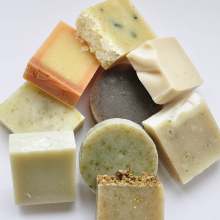It’s nearly time to book a holiday again, and even though this year my choices seem to involve either an Airbnb in the Antarctic or a hermetically sealed panic room in my attic, I’m sure I’ll still be putting sunscreen on my list of essentials.
Sunscreen: we all know how vital it is to put a bottle of it in our holiday suitcase – and then, after it’s leaked all over our holiday clothes, we all know how vital it is to buy another one once we’ve reached our destination. It’s one of those unpleasant, expensive necessities that we’d rather not take on holiday with us but have to – a bit like travel insurance or children.
I have to confess, I’ve been fairly ignorant about sun protection in the past – when I first heard the terms UVA and UVB I thought they were Protestant paramilitary groups in Northern Ireland, and, like many people, I’d not given much thought to the damage my sunscreen might be doing to the environment. All I worried about was the damage the environment might be doing to me if I didn’t slap it on.
However, being an ethically aware consumer means I can’t just think about saving my own skin – I have a planet to protect too, so I need to be choosing something suitably sound. Sadly, I’ve not experienced much in the way of ethical sun protection as living in the north of England means I’ve not experienced much in the way of sun.
A bit of research, though, has made me realise how dangerous some sunscreens are. The chemical-based ones contain ingredients that damage marine wildlife when they’re washed off the skin as we swim in the water, which came as something of a shock to me as I thought the only dodgy chemicals I put into the sea on holiday were as a result of peeing into it surreptitiously.
Something called Oxybenzone is the major culprit here – it may be helping you tan, but it’s bleaching the coral in reefs around the world in what seems to be a deeply unpleasant irony. Hawaii’s actually banned the stuff, such is the damage it’s doing, so it must be bad, as I believe the last thing the incredibly laid-back Hawaiians outlawed was sensible shirts about 50 years ago.
Apparently, it’s also best to use lotions and creams instead of sprays, as sprays tend to land on the sand creating more contamination when that’s washed out to sea by the tide – plus, in my experience, it’s best to avoid sprays as you’ll temporarily blind yourself when using them for the first time without realising that the nozzle is pointing directly at your eyes and not your arms.
I’ve also discovered that most sunscreens contain animal by-products including crushed crab shells – so, next time a pesky crustacean grabs your toe in its pincers at the beach, don’t get upset, just assume it’s trying to reconnect with long-lost family.
Thankfully, there are cruelty-free and vegan options available, which is a bonus – up to now, my idea of a cruelty-free sunscreen application was having my partner warm her hands before rubbing it on my back.
Further investigation has revealed that these ethically aware sunscreens contain a variety of organic ingredients to increase their effectiveness. Sounds good, as I’m all for protecting myself naturally but I have to admit, there’s a nagging fear that going swimming after covering myself in a lotion containing things like shea butter, cocoa butter, soybeans, lavender, peppermint, carrots, raspberries, and avocado will end up making me a much more attractive menu proposition for any hungry sharks in the sea who like their meat marinated, not to mention the traditional holiday wasps who usually spend most of my holidays abroad bothering me.
I think I’m going to need to do a bit more research before choosing the ethical sunscreen that’s right for me, though at the moment I’m veering towards applying one minimally and wearing a sun-protective T-shirt when I’m on the beach or in the sea – let’s face it, by not exposing my hideous overweight torso to the world, surely I’ll be doing enough to make the environment more pleasant?




